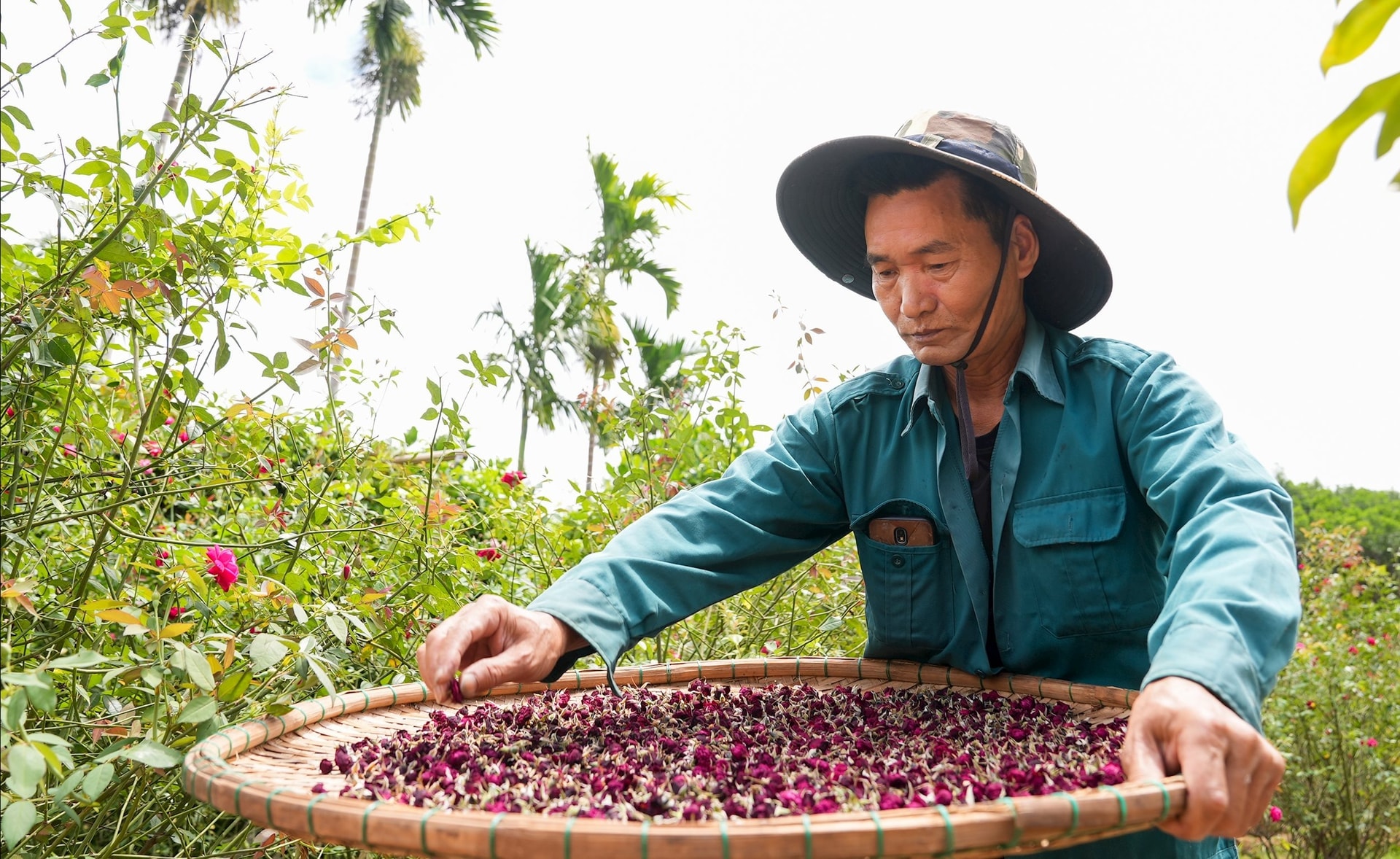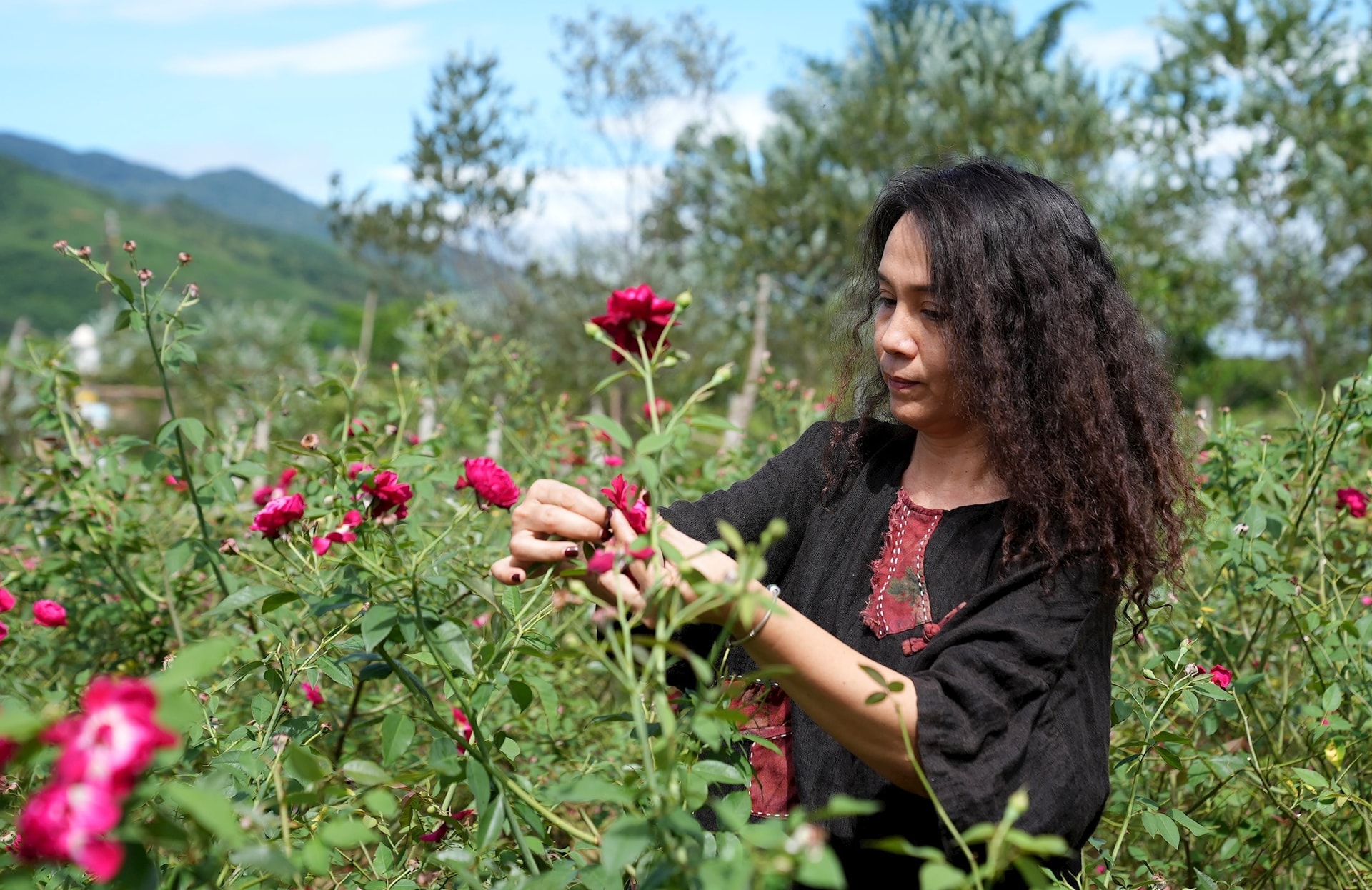DNO - Amid the rolling hills of Song Vang, once famed for its green tea in Da Nang, a new story blooms where ancient Hue roses are transformed into fragrant tea, capturing both tradition and innovation in every delicate crimson bud.

Over a decade ago, farmer Pham Quoc Phong pioneered this transformation. On reclaimed land in Panan hamlet, Song Vang Commune, Da Nang, he introduced the Hue rose variety, discovering that it flourished in local soil and climate.
With half a hectare under cultivation, Phong harvests twice daily, at dawn and dusk, when the buds are richest in natural compounds.
“I produce two varieties: pure rose tea and rose tea blended with che day. Both are valued for their clean, safe production and irresistible aroma,” he explains.
In 2024, his Panan Rose Tea received a 3-star OCOP (One Commune - One Product) certification, though production, about 300 kilograms of dried buds annually, still falls short of growing demand.

Equally inspiring is the journey of Phan Thi Thanh My, the founder of Suoi May - Rose Farm. Beginning in 2021 on what was once barren acacia land in Tong Coi hamlet, she expanded her rose plantation to one hectare.
Through cold-drying methods, she preserves the buds’ essence for longer-lasting, high-quality tea. Her products, Suoi May Rose Tea (OCOP 3-star in 2023) and a rose-themed eco-tourism service (OCOP 3-star in 2024), highlight how agriculture and tourism can flourish together.
Visitors now come not only to taste the tea but also to wander through rose gardens, enjoy cultural experiences, and share the beauty of Song Vang with the world.
With every cup, rose tea embodies the resilience, ingenuity and vision of a community turning nature’s beauty into a signature of local pride.